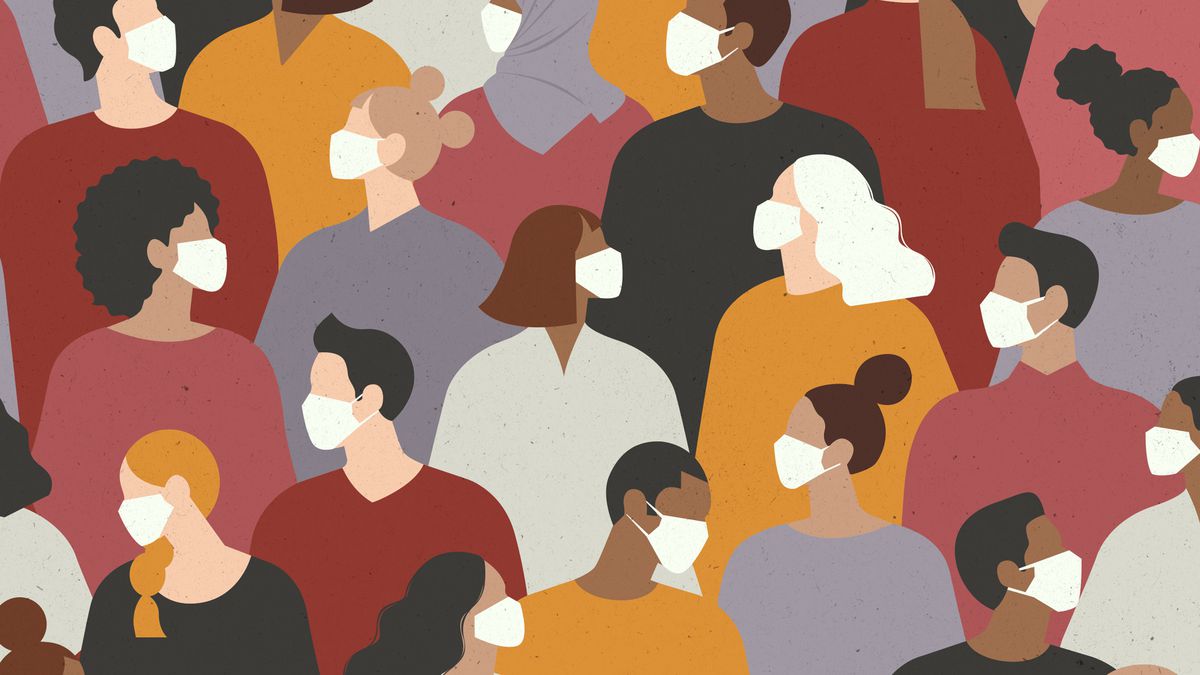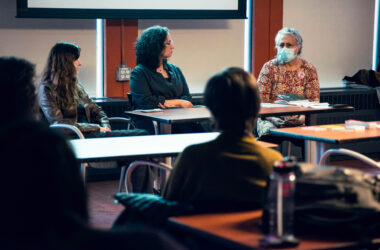On Sept. 13, the Concordia Student Union hosted an online seminar featuring Montreal activists discussing a wide range of subjects, such as systemic oppression against Indigenous Peoples, police brutality against Black people, and the Canadian government’s negligence towards marginalized people during the COVID-19 pandemic. The event was called “Police, Climate and COVID-19” and featured speakers Ellen Gabriel, Harsha Walia, and Sandy Hudson, activists who highlighted injustices plaguing Canada and the world today.
Gabriel, Walia, and Hudson spoke candidly about the state of human rights around the world in 2020, arguing that though there is still a long way to go, the situation is not hopeless. The speakers agreed that systemic injustices are inevitably intertwined, and they stressed the importance of seeing the link between movements such as Black Lives Matter (BLM) and Indigenous rights movements.
Ellen Gabriel, a human rights activist from Kanien’kehá:ka who has advocated for Indigenous peoples’ rights for nearly 30 years, emphasized the exhausting but necessary nature of the fight against colonization.
“For Indigenous people, [activism is] not a hobby, it’s what we have to do because we’re fighting colonization,” Gabriel said. “What I can’t stand are bullies, and that’s what the Canadian government is.”
Harsha Walia, a migrants’ rights activist, author, and lawyer based in Vancouver, BC, asserted that the Canadian government has left many groups behind when addressing the COVID-19 crisis, particularly those of the middle and working classes.
“You’re supposed to believe in the government,” Walia said. “Those who believe in that kind of myth, who think that the state and the government will take care of them, particularly in a health emergency, [suddenly these] middle class or even working class white workers […] realize [that they are] paying into this state structure that actually isn’t [beneficial].”
Sandy Hudson, founder of the Canadian wing of the BLM movement, noted that despite the ebb and flow of public support that typically characterizes activism, her organization has nevertheless been gaining momentum for years. Currently, the movement’s success has resulted in the cultivation of a new chapter with the goal of rallying to defund the police.
“We were seeing on the news a lot of discussion [in] Canadian media about Michael Brown and [the officer who killed him,] Darren Wilson, but not much about Jermaine Carby, [who was a Toronto man murdered by police], and nobody even knew the name of the officer who killed him at the time, Ryan Reid,” Hudson said. “I was upset about it. Many people in the Black community were upset about it.”
Hudson believes that the recent surge in anti-racist activism will not dwindle anytime soon.
“I do think that people truly do care [about civic engagement] […],” Hudson said. “I think that what’s happened this summer is that there’s been so much attention paid to the particular issue of police violence […] against Black people [and] […] Indigenous people. We’ve actually shifted culture significantly through our movement work, and you can’t really go back to a place of ignorance once you’ve gained the knowledge.”
Hudson also argued that what connects these movements are the injustices perpetrated by local police forces.
“Policing in our communities […] really targets our communities in ways that they don’t target people who aren’t Indigenous, people who aren’t migrants, [and] people who aren’t Black,” Hudson said. “The way that the state cracks down on particular communities and tries to keep us at the margins through the use of policing, I mean that’s a thorough line through all of our movements. This is a topic that really is just a human issue.”
In their concluding remarks, the speakers all agreed on the interconnectedness of today’s social justice movements. Gabriel explained that no injustice exists in a vacuum; one cannot discuss the police violence against Black people without also mentioning the exploitation of Indigenous lands.
“In human rights, we say all rights are interdependent [and] interrelated,” Gabriel said. “One right that is violated prevents you from enjoying all of your rights.








